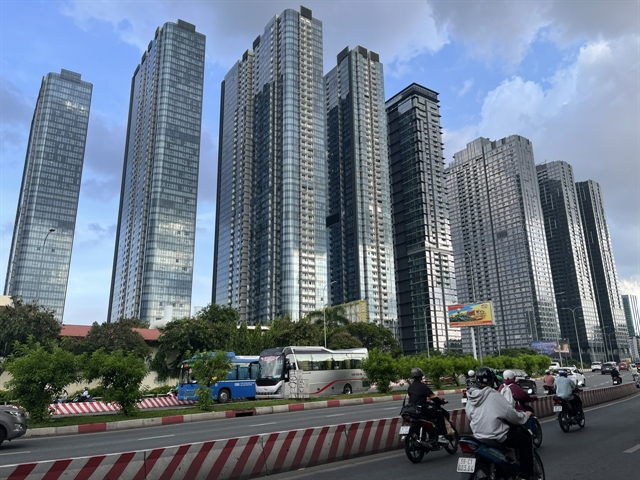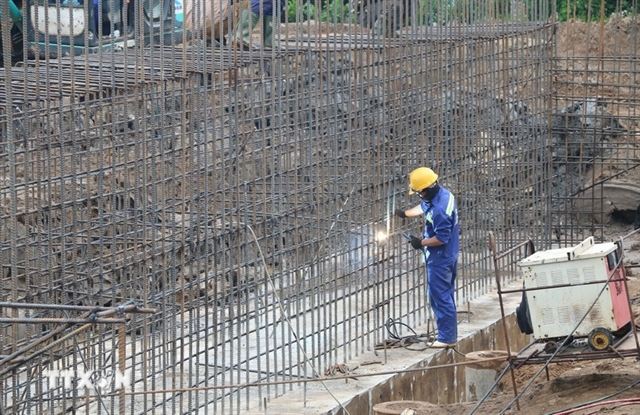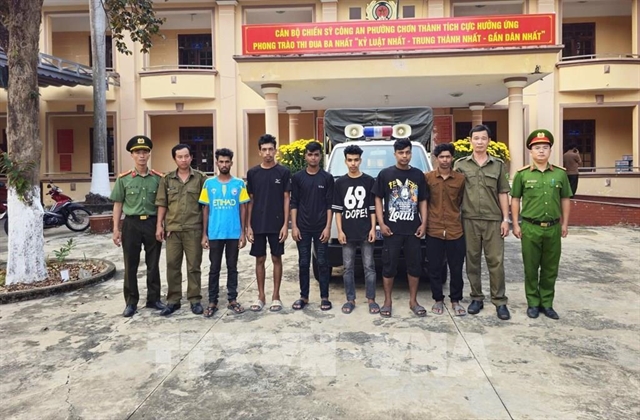 Society
Society

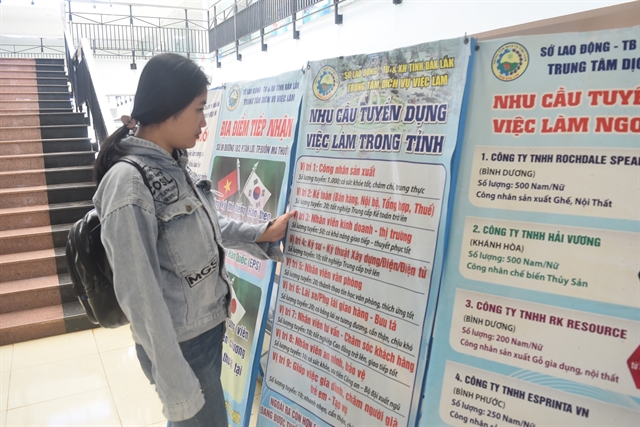
|
| A local resident in the central highland province of Đắk Lắk finds job at a job fair. VNA/VNS Photo |
ĐẮK LẮK — Sending Vietnamese workers for seasonal jobs in South Korea is becoming a viable strategy to help reduce poverty sustainably.
The Central Highlands province of Đắk Lắk, with its high poverty rate and large population of ethnic minorities, has found this initiative particularly impactful.
In the border district of Ea Súp, people face tough living conditions due to severe weather, limited irrigation infrastructure, natural disasters and volatile agricultural prices.
The programme offering seasonal work in South Korea has introduced a new path, providing a stable income and improving local livelihoods.
Hà Văn Hương, a member of the Thai ethnic group from Ea Rvê Commune, Ea Súp District, has just returned from his third three-month seasonal job in the Republic of Korea.
Hương’s family, classified as low-income, owns two hectares of cassava land, but harsh border-area weather and recurring drought have hindered crop productivity.
After learning about the programme for going abroad for work through local officials, he registered to participate.
Hương has now completed three trips. After covering expenses, he has brought back approximately VNĐ70-80 million (US$2,760-$3,150) each time, using the savings to repair his house and invest in additional cassava cultivation.
“My job there mainly involved planting and harvesting sweet potatoes. I worked nine to ten hours a day. Compared to farming here, it wasn’t too strenuous,” Hương said.
“I learned a lot, especially about modern agricultural practices in South Korea, which I hope to apply to my work at home. I hope this programme continues, as it provides stable work and income, helping us improve our lives,” he said.
Similarly, Phan Bá Tý from Ea Súp Town in Ea Súp District has worked three seasonal stints in South Korea.
His wife, Vũ Thị Dinh, said he began his latest trip in this August. He is working at a sweet potato farm in Iksan City, Jeollabuk Province, earning around VNĐ30 million ($1,180) per month before overtime.
After two trips, Tý brought back VNĐ170 million ($6,700), which the couple used to renovate their home and invest in farming and livestock to boost their livelihood.
According to Hoàng Thị Kiều Oanh, Deputy Head of Ea Súp District’s Office of Labour, War Invalids and Social Affairs, the seasonal work programme in South Korea has been well received, helping to address local employment needs, increase income and support poverty alleviation efforts.
The three-month working period allows workers to earn an income while managing family obligations back home.
Most seasonal workers from Đắk Lắk are from low-income or struggling backgrounds. After expenses, they typically save between VNĐ70-90 million per trip.
This income helps them pay off debts, invest in livestock and agriculture, and improve their family’s quality of life.
The wages for seasonal work abroad are significantly higher than domestic options, and while the investment is minimal, the economic benefits are substantial.
Additionally, working abroad gives participants a chance to learn new skills, including language and advanced work techniques, while adopting new technologies.
“All at no training cost to them. This valuable experience can open up career opportunities upon returning home,” she said.
A promising path
With support from the Đắk Lắk Province’s People’s Committee and Department of Foreign Affairs, the Ea Súp District People’s Committee signed a cooperation agreement on sending and receiving seasonal agricultural workers in South Korea in February 2023.
The agreement, between Ea Súp District, Đắk Lắk Province, and the government of Iksan, Jeollabuk Province, South Korea, prioritises workers from low-income, near-poor and ethnic minority households.
Nearly two years into the programme, Ea Súp District People’s Committee has recruited and sent 327 workers to South Korea for seasonal employment.
Based on labour needs from the Iksan authority, the district has carried out recruitment, signed contracts with workers and directed its Office of Labour, War Invalids and Social Affairs to coordinate with relevant agencies to provide orientation training, Korean language lessons and assist workers with obtaining necessary documentation.
The office also organises the logistics for workers’ departure and their return upon contract completion. The workers’ only required expense is about VNĐ20 million ($788) for travel.
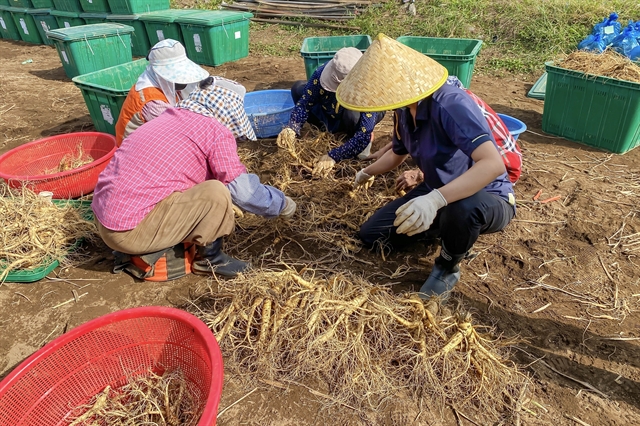
|
| Vietnamese labourers work at a ginseng farm in the mountainous area of Geumsan, Nam Chungcheong District in South Korea. VNA/VNS Photo Phạm Anh Nguyên |
Oanh, Deputy Head of Ea Súp’s Department of Labour, War Invalids and Social Affairs, noted that upon arrival in South Korea, workers are assigned to groups and placed on farms with stable employment and safe, well-ventilated housing provided by employers.
Workers cover their own housing and meal expenses.
Despite the programme’s benefits, challenges remain, she said. Some individuals have taken advantage of the programme, abandoning their jobs to reside illegally in South Korea for short-term personal gain, which complicates the partnership.
Nguyễn Quang Thuân, Deputy Director of Đắk Lắk’s Department of Labour, War Invalids and Social Affairs, stated that there is significant demand for seasonal work abroad, especially in South Korea.
Over the past two years, three districts of Ea Súp, Krông Năng and Ea H’Leo have signed similar agreements with Jeollabuk Province. However, only Ea Súp has successfully sent workers. Workers from Đắk Lắk are highly valued, signalling promising opportunities for local labour.
Ea Súp’s foreign labour programme is part of a comprehensive poverty reduction strategy, aligned with initiatives to boost agricultural production, improve infrastructure and enhance healthcare and education services for residents.
These overseas work opportunities have been a powerful motivator, helping local labourers break the cycle of poverty and stabilise their lives, underscoring the district’s commitment to leaving no one behind in its development efforts. — VNS


